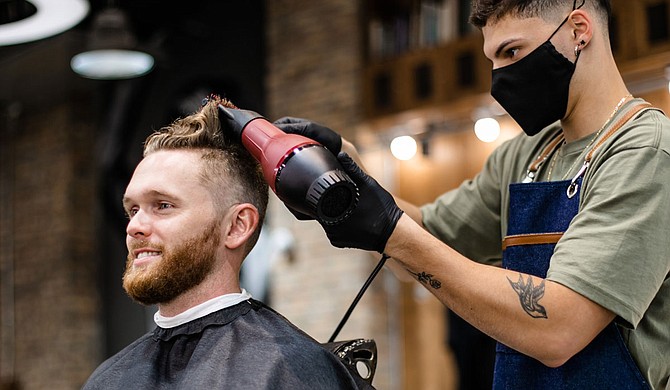Along with mask usage and social distancing, vaccinations are providing Mississippians a degree of freedom to go about their lives. Photo by Delfina Pan on Unsplash
Jackson Mayor Chokwe Antar Lumumba lifted restrictions on businesses in the capital city today, via an executive order that removed all restrictions on capacity and operating hours.
“We know that success at controlling the spread of this virus depends upon all of us adhering to recommended social distancing and mask wearing guidelines,” Lumumba said. “We also recognize the economic impact that this pandemic and the resulting restrictions have had on our business community and our city. This order aims to help Jackson businesses prosper through this challenge by opening more public spaces and lifting capacity restrictions while maintaining some necessary precautions.”
The executive order retains a city-wide mask mandate in public and private spaces for those who cannot maintain 6 feet of distance.
COVID-19 cases and deaths continue to decline across the state, as Mississippians have received more than 1.8 million vaccination shots in arms. Data from the Mississippi State Department of Health show close to 1 million first shots, while more than 800,000 residents have been fully vaccinated via one of the three vaccines available around the state.
January marked the yearly high for COVID-19-related cases and deaths. MSDH data show an average of 300-plus deaths per week for early and mid-January, with those numbers steadily declining over the following months. MSDH data for the last seven days indicates the stark contrast between January and May, with reports of 39 fatalities and an average of 43 new cases per day.
In a May 2 Tweet, State Health Officer Thomas Dobbs highlighted the grim distinction in mortality rates between 2019 and 2020. Mississippi faced a “22.9% higher death rate in (the) first 10 months of the pandemic,” Dobbs said. “Most of these lost friends and family would still be here and for years to come.”
Hard data evidencing the strong effectiveness of the vaccines continue to emerge. Dobbs highlighted a University of California Irvine study that compared immunity from vaccination to natural immunity—acquired through a COVID-19 infection.
“(There’s) more robust immunity from vaccine than infection with COVID,” Dobbs wrote, echoing the findings of the study.
The studies’ authors also concluded that vaccination was a solid decision even for those with some degree of natural protection from a COVID-19 infection.
“Vaccination induces more robust (antibody) response than natural exposure alone, suggesting that those who have recovered from COVID may well benefit from the vaccination,” they concluded.
This week, expert observers are awaiting a new milestone in the vaccination effort, with the Food and Drug Administration expected to approve the currently available Pfizer mRNA vaccines for children aged 12 and older.
Hundreds of thousands of Mississippi children are still ineligible for vaccination, a barrier to herd immunity that vaccine approval for younger residents could remove.
Vaccine-hesitant parents may present a continuing obstacle to that effort. Previously, MSDH surveys have found that just over half of Mississippi parents intend to vaccinate their children against COVID-19, the largest measure of vaccine hesitancy polled.
Still, while full herd immunity is still a ways off, state health leadership has stressed the protective measures already in place for the most vulnerable individuals.
At the end of April, State Epidemiologist Dr. Paul Byers highlighted the progress in vaccinating the state’s elder population. “Seventy percent of Mississippi individuals 75 and older have at least one dose of COVID-19. That’s a huge step towards protecting the hospital system and the lives of the most vulnerable to complication and death from the virus,” he said.
Email Reporting Fellow Julian Mills at [email protected].


